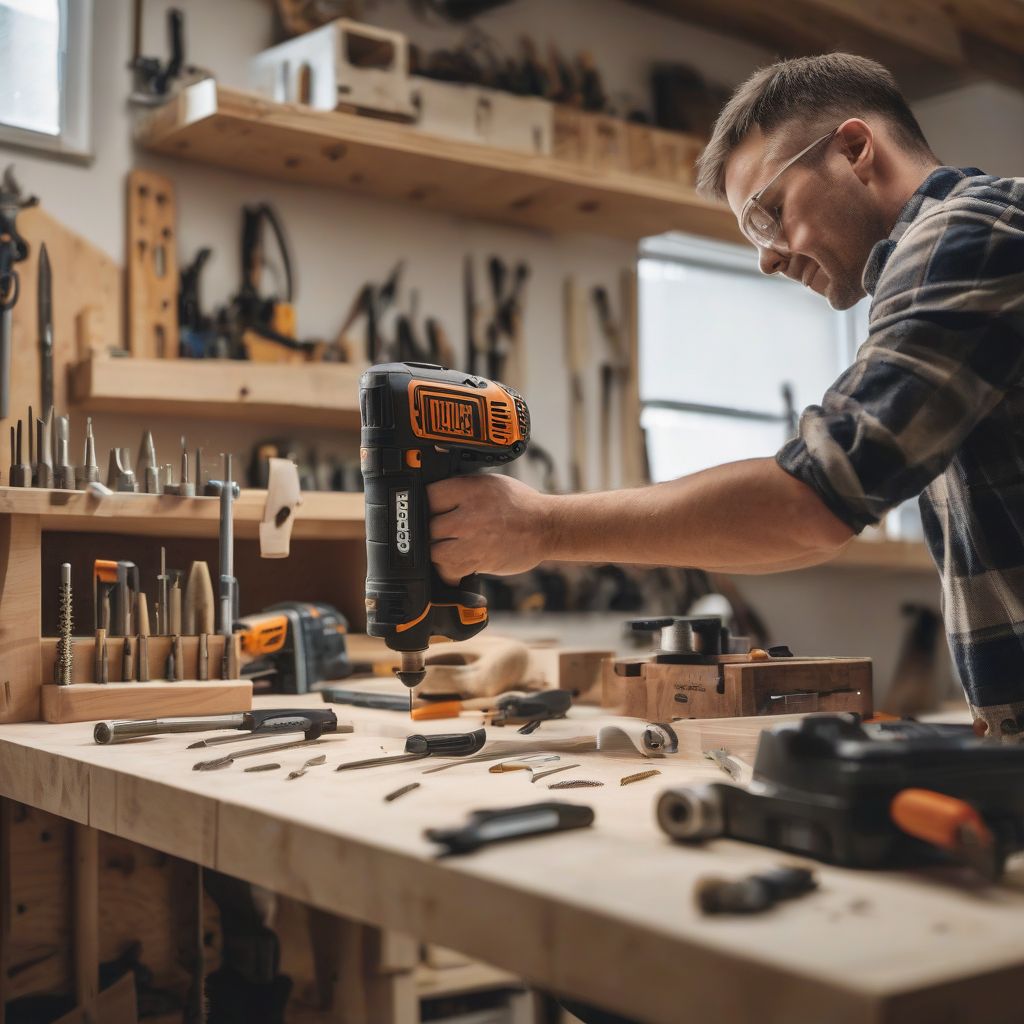Have you ever stood in your living room, staring at a wonky shelf or a dripping faucet, dreaming of the day you could fix it yourself? Many of us yearn for the satisfaction of completing DIY home projects, but fear and self-doubt often hold us back. Building confidence in your DIY abilities is achievable with the right approach. This guide will provide you with practical steps and expert advice to empower you to tackle those home improvement projects you’ve been putting off.
Understanding the Fear of DIY
Fear is a natural human response, and when it comes to DIY, it often stems from a lack of knowledge, experience, or past failures. Perhaps you tried a project that didn’t turn out as planned, leaving you feeling discouraged. Or maybe you simply don’t know where to begin. Recognizing the root of your fear is the first step to overcoming it. “The only way to do great work is to love what you do,” Steve Jobs famously said. While you might not love unclogging a drain, finding satisfaction in learning new skills and improving your home can be a powerful motivator.
Starting Small and Building Momentum
One of the most effective ways to build confidence is to start with small, manageable projects. Choose something that you feel relatively comfortable with and has a high chance of success. This could be as simple as patching a hole in the wall, fixing a leaky faucet, or assembling a piece of furniture. Each successful completion, no matter how small, will boost your confidence and encourage you to tackle more challenging projects.
Choosing the Right First Project
Selecting an appropriate first project is crucial. Consider your current skill level and available resources. Projects like painting a wall, assembling flat-pack furniture, or regrouting bathroom tiles are excellent starting points. These projects are relatively straightforward, require minimal tools, and offer immediate, visible results, which can be highly motivating.
Equipping Yourself with Knowledge and Skills
Knowledge is power, especially in the world of DIY. Before starting any project, thoroughly research the process. Watch online tutorials, read how-to guides, and consult with experienced DIYers. The more you understand the steps involved, the less intimidating the project will seem.
Utilizing Online Resources
The internet is a treasure trove of DIY information. YouTube channels, blogs, and forums dedicated to home improvement offer step-by-step instructions, product reviews, and expert advice. Websites like DIY Home Projects Hub offer valuable resources for beginners, including guides on essential tools and advanced techniques. You can find helpful articles like “The Best Tools Every Beginner DIYer Should Have” or discover “The Role of Professional-Grade Tools in Advanced DIY Work” to equip yourself with the right knowledge and equipment.
Gathering the Necessary Tools
Having the right tools for the job can significantly impact your confidence and the success of your project. Start with a basic set of essential tools and gradually expand your collection as you tackle more complex projects. Quality tools can make a difference, so invest in reliable brands whenever possible.
 Building Confidence in DIY
Building Confidence in DIY
Embracing Mistakes as Learning Opportunities
Mistakes are inevitable in DIY. Don’t be discouraged if things don’t go perfectly the first time. View every mistake as a learning opportunity. Analyze what went wrong, research solutions, and try again. This iterative process will not only improve your skills but also strengthen your resilience and problem-solving abilities.
Seeking Support and Guidance
Don’t be afraid to ask for help. Reach out to friends, family, or neighbors who have DIY experience. Joining online communities or attending local workshops can also provide valuable support and guidance. Sharing your experiences and learning from others can significantly boost your confidence and motivation.
Celebrating Your Successes
Every completed DIY project, no matter how small, is a victory. Take the time to celebrate your accomplishments. Sharing your finished projects with others can reinforce your progress and inspire you to continue your DIY journey.
Conclusion
Building confidence in tackling DIY home projects is a journey, not a destination. By starting small, equipping yourself with knowledge, embracing mistakes, and seeking support, you can overcome your fears and transform your home into a testament to your growing DIY skills. Remember, the most important tool in your DIY arsenal is your own confidence. So, pick a project, take a deep breath, and get started. Share your DIY journey and inspire others to take the plunge. What project will you tackle first? Let us know in the comments below!



